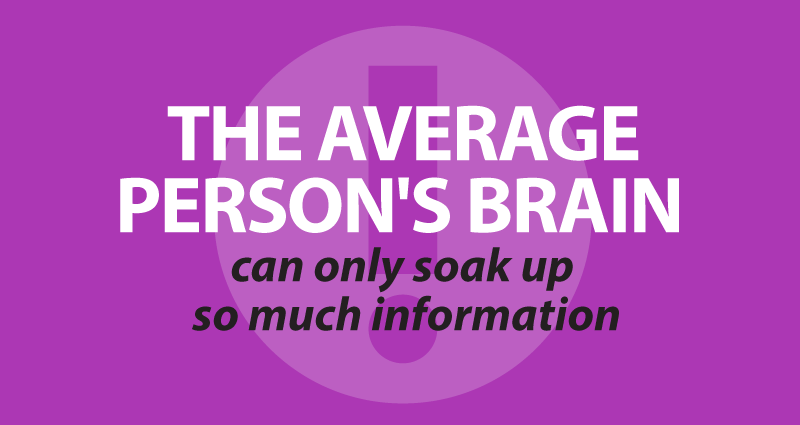
Positioning 101
The vast amounts of communication seen daily by each person is staggering. Each year in the U.S., the average person has more than 200,000 advertising messages pushed at them, 30,000 books are published (enough to keep you reading 24 hours a day for 17 years), while 25,000 new trademarks are added. It is said that a college grad has a speaking vocabulary of 8,000 words, yet your basic grocery store has more than 12,000 items on display.
Yet the average person’s brain can only soak up so much information. So how does a person deal with this noise level?
The only way the human mind can cope is to categorize items, ranking them in their mind. Think of soft drinks, and you might list Coke as #1, Pepsi #2, and 7-Up #3. If you think of almost any product or service, you can probably come up with a similar list. That list in your head marks how you rank each product or company in order, by category.
In simplified marketing terms, that’s Positioning.
Your credit union is already positioned in the minds of your members, whether you have researched it or not. If you ask non-members to list the top financial institutions in your market, your credit union may not even make it on the list. If you ask either group to rank financial institutions by “where to go for an auto loan” you may get a different order. These lists affect people’s reactions to your membership, marketing, and more.
In addition to positioning products and services in customers’ minds, it also works for prospective employees or investors. In the minds of the public, the “best people” work for the best company, and lesser companies get the “leftovers.” Plus, good positioning can transcend every aspect of a company and its employees, providing a framework for both daily work and future growth.
So where do you start?
Start with this brutal truth: it does not matter if you believe your products and services are better than the competition’s. It does not matter what management thinks either. What matters are the perceptions of your members, both current and prospective. You have to get on the list that’s in their heads. You have to find a way to hook into what’s already there.
Now roll up your sleeves:
- Think long-range (years, not months) because positioning is cumulative, and be patient with the process. A great spring home equity campaign is not a position, but becoming the top-of-mind home equity loan provider in your market is.
- Start with research. Find out what your members/potential members want, not if they want what you offer. If these don’t match up, better adjust your thinking and build on what members and potential members already think about you.
- Don’t let egos get in the way. When you research, ask the members/potential members, not the employees, the marketing director or the president.
- Use outsiders in order to give you objectivity, such as a research firm. Use an ad agency to give you creative approaches to marketing based on the research. Both are more attuned to outside-in thinking, and while positioning gives creativity guidelines, creativity can contribute greatly to positioning.
Specific points to remember when positioning a credit union:
- When you’re not first in mind, you can’t just be “better” with a “me-bank-too” approach. You have to find a hole and fill it. Consider variables such as SEG sizes, pricing strategies, specific age groups, specialty services, etc.
- Define yourself with a narrow focus of expertise. You can’t be all things to all people, because then you are nothing specific to anyone.
- Do not try to compete head-to-head with bigger banks. You fight fire with water, not more fire – so think differently.
- You cannot simply compare yourself to a competitor, you have to reposition them. Get your target market to change their mind about the competitor, in a way they can verify from their own experiences.
- Know how words trigger meanings in people’s minds. When you name products, use a name that conveys a major benefit, one that works aurally as well as visually. Use headlines in print ads that sound good on radio.
- Keep it simple. If it gets too complicated, it won’t be understood. When you market to the community at large, don’t try to explain concepts such as membership and ownership. Ownership in a credit union is too vague a concept for most people. And membership usually implies some sort of economic qualifier to get in. Those are two huge hurdles to get over if your positioning is to be the first-in-mind for small business loans.
- It’s hard not to get caught up in a buzz that surrounds you. - April 9, 2024
- Turn your staff into an Idea Factory. - February 27, 2024
- Move with the future or get left behind - February 6, 2024
